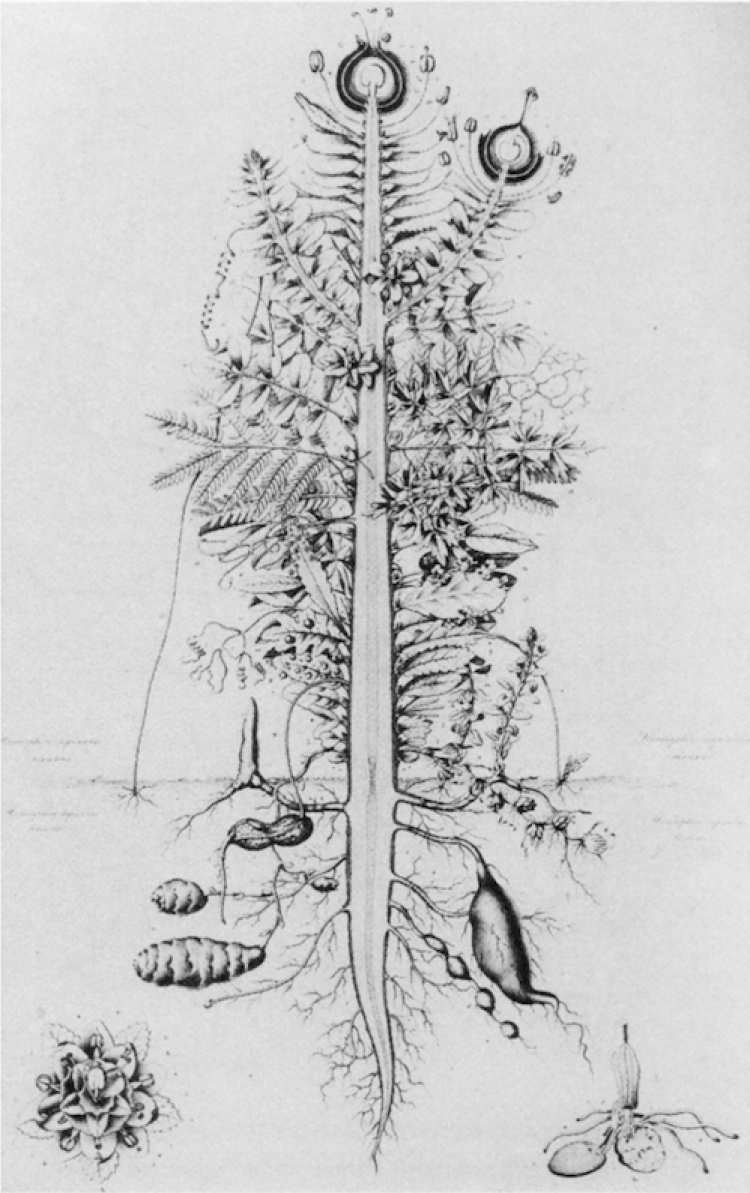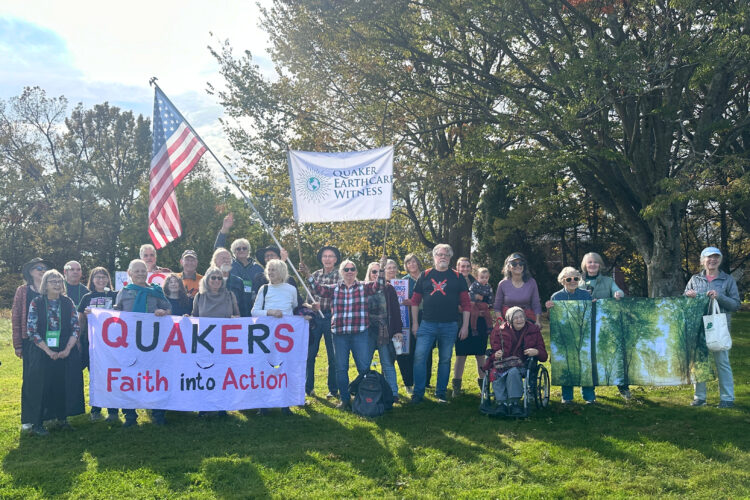40 Quakers With 30 Agendas

By Tom Small.
“FORTY QUAKERS WITH 30 different agendas.” That’s how I characterized—only half-jokingly—the Quaker Earthcare Witness Steering Committee when I was its Clerk from 1996 to 1998.
The Friends Committee on Unity with Nature—that’s what we called ourselves back then. So where was the Unity in all those differences? Unity with Nature? And is it the same—or different—now, as we celebrate the 30th anniversary of FCUN/QEW?
Does it help to think of us as the leaves of a tree? All different, but all one tree, one recognizable pattern? Perhaps we are seekers, like Goethe, after the Urleaf, the pattern from which all parts of all flowering plants are generated. Thoreau, following Goethe’s insight, remarked, “The Maker of this earth but patented a leaf.” Modern molecular genetic research suggests that Goethe had it just about right. Could it be that Nature is also fond of Quakers as patterns for metamorphosis?

Perhaps “Unity with Nature” consists in the evolution or unfolding of difference, Nature’s method of changing in order to stay the same. That might help to explain what felt like chaos as I clerked the Steering Committee meeting in Old Chatham, New York back in 1997. Maybe Darwin offers some help: where there are no woodpeckers, the finch remains a finch by occupying the woodpecker’s vacant niche. Voilà! A different beak—a longer, sharper one. Still a Galàpagos finch, but with an essential difference. A new leaf. Same pattern.
Might it be well, as we struggle with each other’s differences, to ponder a conversation back in 1757 between the Delaware chief Teedyuscung and a weighty Philadelphia Quaker? The Delaware had spoken of the Pennsylvania governor’s words, at the previous day’s meeting with him, as coming only from “the outside of his teeth” and vowed, “I would speak so too.” As the two friends sat in silence, the Delaware thought about white men’s increasing claims of possession on the land. The Quaker broke the silence by recommending the Golden Rule as the model to follow. The Delaware rejected it vehemently: “impossible.”
If we think about the historical context, involving an unsuccessful negotiation about land, Teedyuscung’s response makes a lot of sense. The conflict, the “difference,” is between two radically opposed cultures. For the Native culture, the land is common; it belongs to no person. For the European culture, the land is property, part and parcel of the advance of civilization, the proper study of mankind.
To ask the Delaware chief to “do unto the other as he would have the other do unto him” is equivalent to acknowledging that we are the same when we are not. We are different, assert the Delaware. The native sense of relation to the land, which is life, and the water, which is life, and the earth, which is mother, is radically different from the European relation to the land as property to be claimed, bought, and sold.
The “Golden Rule” leads, in the colonial context, to dispossession of cultural identity and forced assimilation, the European-American answer to the Indian problem for more than 300 years. It justifies suppression of difference. Reduction of land and place from “thou” to “it,” and the same for the human spirit interdependent with land and place.
Okay, I figure that just about now you might be wondering how and when I’m going to get us out of 18th-century Philadelphia and back to the 30th anniversary. So here goes…
I ended my Clerk’s report to the Steering Committee in 1996, as we entered FCUN’s tenth year, by invoking the “new ferment and spirit, within us and around us. So, celebrate we shall,” I affirmed, “as we renew our commitment to witness together for transformation.”
Twenty years later, we’re still the same. And we’re still all different. In the late 18th century, Antoine Lavoisier, one of the founders of modern chemistry, wrote, “Nothing gets lost. Nothing is created. Everything transforms.” Isn’t that what generates difference? Isn’t that how Nature works? Unity, wholeness, fullness, through difference. Transformation in order to continue the same. Isn’t that what we celebrate?
I’ve come to FCUN and QEW meetings for 25 years. I come because of our differences. I come because we don’t require each other to change. Instead, we celebrate and support difference. We wait upon “That of God” in every thing, Nature’s power of transformation, in order to continue.
SOURCES: J. W. von Goethe, The Metamorphosis of Plants (1790); David Lee, Nature’s Fabric: Leaves in Science and Culture (2017); Scott L. Pratt, Native Pragmatism: Rethinking the Roots of American Philosophy (2002).

